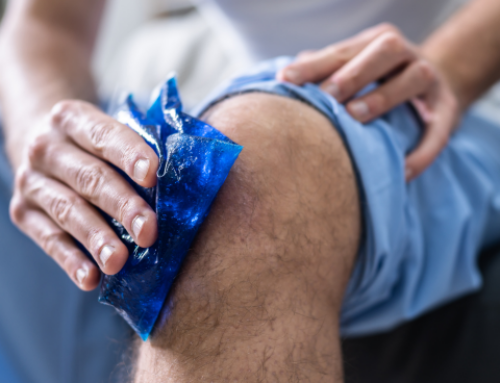Eat Healthy to Build Muscle
“Coach, how do I get big?” The question is frequently asked, and always as if it were a mystery. I love opportunities to teach proper methods that adolescents and adults can use to build muscle. It’s as simple as eating, sleeping and working. The most important, and sometimes most difficult, component is eating.
Misconception
The primary misconception among young athletes is that there is a magical supplement, and that without it, they will never achieve their muscle building goals. And while they wait for this magical supplement, they waste precious time. In essence, eating certain foods is all your body needs in its quest to build muscle.
Timing
An important aspect to eating is timing. It is not always convenient to eat protein and carbohydrates, which is one reason why supplements are promoted and used across many sports. However, contrary to popular belief, supplements are not necessary for building muscle.
First and foremost is the primary meal of the day, which you should eat approximately 30 minutes after waking up each morning. Breakfast is important for jump-starting your metabolism, fueling your body for the tasks ahead.
Another, often forgotten, part of the eating schedule is the 30-minute period after a workout. Often referred to as the “window of opportunity,” this is when muscles are broken down and need repair. Repair is what happens when they consume protein. There is no better time to feed your muscles than after a workout. Eating a well-balanced meal containing sources of high-quality protein is necessary for building muscle. Learn more about nutrient timing.
Athletes tend to consume supplements because they are quick and easy, and sometimes the cheapest sources. Add water, shake it, drink it: protein consumption in its pure essence.
Frequency
Protein is a requirement in all meals. At times, it can be difficult to support your work and manage a strict diet regimen. If you lead an active lifestyle, it’s good practice to consume six small meals a day, possibly more. Additional meals will depend on the amount of calories you need per day. All meals consumed should contain a realistic amount of protein. Warning: over-consumption of protein can lead to unwanted weight gain, intestinal problems, and a multitude of side effects. Therefore, it’s a good idea to document your protein intake on a daily basis. Many smart phone applications exist to accomplish this. Learn more about managing your diet.
Schedule of Meals
- Breakfast – no later than 1 hour past wake-up (large quantity of food)
- Mid-Morning – small snack containing protein (e.g., yogurt)
- Lunch – small amount of carbs, must contain protein
- Mid-afternoon – small snack containing protein (e.g., granola bar)
- Post-Workout – protein in the amount of 10% your body weight in grams
- Dinner – proteins, greens
Examples of High-Quality Proteins
- Lean cuts of beef or poultry – do not eat large amounts of one or the other and go for variety
- Boiled Eggs – boiling takes approximately 10 minutes
- Fish – salmon, catfish or canned tuna (avoid in oil) – roughly 7 grams of protein per ounce
- Beans – eaten with rice is great for its protein potential
- Milk – non-fat milk is an excellent source of protein, 8 grams per 8 ounces
- Cottage Cheese – 1% fat, over 20 grams of protein per cup
- Nuts – natural or seasoned, roughly 8 grams of protein per ounce
Sample Breakfast
Never miss the most important meal of the day. Get in the habit of consuming a plentiful helping of protein, carbohydrates and dietary fiber. Example: 1 cup of oatmeal, 3 boiled or scrambled eggs, 1 slice of whole grain toast, 1 cup of orange juice, 1 cup of greek yogurt and a glass of non-fat milk.
The quantity of food in a single meal should decrease throughout the day, but the amount of protein should be evenly distributed.
Be mindful of your protein intake through each meal of the day. Eat a variety of food containing protein at least 6 times per day. Schedule a timeframe for meals consistent with your daily schedule. After every intense workout, hefty protein absorption is required. You are now eating to build muscle.
(Learn more about how to build a healthy breakfast.)
Photo: the4417milediet.blogspot.com
RECOMMENDED FOR YOU
Eat Healthy to Build Muscle
“Coach, how do I get big?” The question is frequently asked, and always as if it were a mystery. I love opportunities to teach proper methods that adolescents and adults can use to build muscle. It’s as simple as eating, sleeping and working. The most important, and sometimes most difficult, component is eating.
Misconception
The primary misconception among young athletes is that there is a magical supplement, and that without it, they will never achieve their muscle building goals. And while they wait for this magical supplement, they waste precious time. In essence, eating certain foods is all your body needs in its quest to build muscle.
Timing
An important aspect to eating is timing. It is not always convenient to eat protein and carbohydrates, which is one reason why supplements are promoted and used across many sports. However, contrary to popular belief, supplements are not necessary for building muscle.
First and foremost is the primary meal of the day, which you should eat approximately 30 minutes after waking up each morning. Breakfast is important for jump-starting your metabolism, fueling your body for the tasks ahead.
Another, often forgotten, part of the eating schedule is the 30-minute period after a workout. Often referred to as the “window of opportunity,” this is when muscles are broken down and need repair. Repair is what happens when they consume protein. There is no better time to feed your muscles than after a workout. Eating a well-balanced meal containing sources of high-quality protein is necessary for building muscle. Learn more about nutrient timing.
Athletes tend to consume supplements because they are quick and easy, and sometimes the cheapest sources. Add water, shake it, drink it: protein consumption in its pure essence.
Frequency
Protein is a requirement in all meals. At times, it can be difficult to support your work and manage a strict diet regimen. If you lead an active lifestyle, it’s good practice to consume six small meals a day, possibly more. Additional meals will depend on the amount of calories you need per day. All meals consumed should contain a realistic amount of protein. Warning: over-consumption of protein can lead to unwanted weight gain, intestinal problems, and a multitude of side effects. Therefore, it’s a good idea to document your protein intake on a daily basis. Many smart phone applications exist to accomplish this. Learn more about managing your diet.
Schedule of Meals
- Breakfast – no later than 1 hour past wake-up (large quantity of food)
- Mid-Morning – small snack containing protein (e.g., yogurt)
- Lunch – small amount of carbs, must contain protein
- Mid-afternoon – small snack containing protein (e.g., granola bar)
- Post-Workout – protein in the amount of 10% your body weight in grams
- Dinner – proteins, greens
Examples of High-Quality Proteins
- Lean cuts of beef or poultry – do not eat large amounts of one or the other and go for variety
- Boiled Eggs – boiling takes approximately 10 minutes
- Fish – salmon, catfish or canned tuna (avoid in oil) – roughly 7 grams of protein per ounce
- Beans – eaten with rice is great for its protein potential
- Milk – non-fat milk is an excellent source of protein, 8 grams per 8 ounces
- Cottage Cheese – 1% fat, over 20 grams of protein per cup
- Nuts – natural or seasoned, roughly 8 grams of protein per ounce
Sample Breakfast
Never miss the most important meal of the day. Get in the habit of consuming a plentiful helping of protein, carbohydrates and dietary fiber. Example: 1 cup of oatmeal, 3 boiled or scrambled eggs, 1 slice of whole grain toast, 1 cup of orange juice, 1 cup of greek yogurt and a glass of non-fat milk.
The quantity of food in a single meal should decrease throughout the day, but the amount of protein should be evenly distributed.
Be mindful of your protein intake through each meal of the day. Eat a variety of food containing protein at least 6 times per day. Schedule a timeframe for meals consistent with your daily schedule. After every intense workout, hefty protein absorption is required. You are now eating to build muscle.
(Learn more about how to build a healthy breakfast.)
Photo: the4417milediet.blogspot.com











